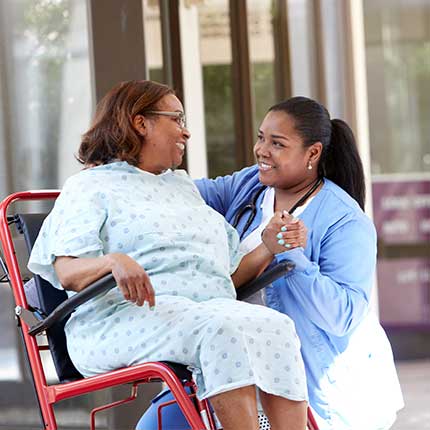Healthy Living
When to See a Urologist
Many people associate urologists with male reproductive health, such as prostate problems. However, urologists also treat male and female urinary tract disorders. Some urologic conditions are long-lasting, while others may last only a short time.
What Are the Symptoms of Urology Problems?
The most common symptoms that can point to a urological condition include the following:
- Pain when urinating
- Incontinence or lack of voluntary control over urination
- Bladder issues, like overactive bladder
- Kidney stones
- Problem with urine flow
- Erectile dysfunction
- Infertility
- Male or female genital abnormalities
- Prostatitis or enlarged prostate
- Cancers in the kidneys, bladder, testicles, penis or prostate
- Male hormone problems, such as low testosterone
What Is Urology?
Urology is a branch of medicine that specializes in treating and managing diseases of the male and female urinary tract, including the kidneys, ureters, bladder and urethra. It also deals with the male reproductive system, including the penis, testes, scrotum and prostate. Urology subspecialties include:
- Urologic oncology
- Renal transplant
- Male infertility
- Calculi
- Female urology
- Neurology
- Pediatric urology
What Is the Most Common Urological Problem in Male Adults?
Prostate enlargement or benign prostatic hyperplasia (BPH) is a condition in which the prostate gland is enlarged and presses against and pinches the urethra. The bladder wall thickens, weakens and eventually loses the ability to empty. BPH is not cancerous but causes many problems, such as urinary tract infections, bladder and kidney damage and bladder stones. Benign prostatic hyperplasia is the most common prostate problem for men older than 50.
Another common prostate problem is prostate cancer, the second-leading cause of cancer deaths for men in the US. Abnormal growth in the prostate is either benign (not cancer) or malignant (cancer). Prostate cancer can break away from a prostate tumor and travel through blood vessels or lymph nodes to other body parts. Symptoms of prostate cancer include painful ejaculation, frequent urinating and trouble urinating, pain, burning or weak urine flow.
Erectile dysfunction is the most common sex problem that affects as many as 30 million men in which a male cannot get or keep an erection firm enough to last long during sexual intercourse. Although it's normal for a man to have trouble getting an erection from time to time, progressive erectile dysfunction requires treatment. According to some studies, men with erectile dysfunction are at an increased risk for cardiovascular disease, stroke or circulatory problems in the legs.
Why Would a Woman be Referred to A Urologist?
As many as 40% of women in the United States suffer from an overactive bladder. The most common overactive bladder symptom has a sudden, strong urge to urinate many times during the day. Waking from sleep to urinate more than once at nighttime is also a symptom of an overactive bladder. Without treatment, symptoms can cause depression and skin problems or infection. There are many treatments to help manage overactive bladder symptoms.
Limiting food and drinks that irritate the bladder, such as coffee, tea and alcohol can worsen the symptoms. Many people report feeling better when they change how they eat and drink.
There are many reasons why a person should visit a urologist. If you or someone you know has symptoms or conditions that involve the urinary tract or male reproductive system, go to the nearest hospital or visit a urologist as your first step. Please don't delay care. We're here for you always.
Sources:
National Institute of Diabetes and Digestive and Kidney Diseases
Urologic Care Foundation



